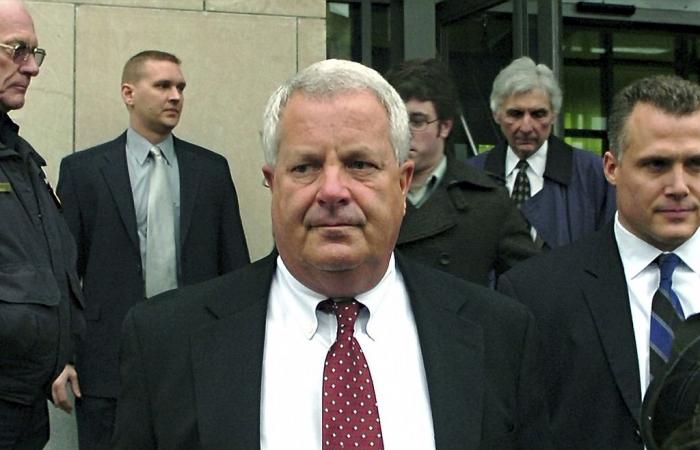Biden’s clemency for judge involved in kids-for-cash scandal sparks anger Newslooks Washington DC Mary Sidiqi Evening Edition President Joe Biden commuted the sentence of Michael Conahan, a former Pennsylvania judge implicated in the “kids for cash” scandal, which led minors to for-profit detention centers in exchange for bribes. The move drew sharp criticism from families affected by the scandal, as well as officials in northeastern Pennsylvania. Conahan, who pleaded guilty to corruption in 2010, had served most of his 17-year sentence. This decision has reignited debates on justice, accountability and the lasting impact of judicial corruption.
Biden’s clemency for a judge who promotes children for money: Quick overview
- Historical scandal:Conahan and another judge, Mark Ciavarella, orchestrated a scheme to send juveniles to for-profit detention centers in exchange for $2.8 million in bribes.
- Impact on families:Thousands of juvenile convictions have been overturned, and families have been devastated by the consequences.
- Pardon decision:President Biden commuted Conahan’s 17-year prison sentence after he served most of it, sparking outrage.
- Reaction of victims:Families and victims’ rights defenders condemned this clemency measure, calling it a betrayal of justice.
- Governor’s response:Pennsylvania Governor Josh Shapiro criticized the decision, saying Conahan deserved to remain behind bars.
- Co-conspirator status:Mark Ciavarella, who was tried, continues to serve a 28-year sentence.
Deep look
President Joe Biden’s decision to commute the sentence of Michael Conahan, a disgraced judge implicated in the kids-for-money scandal, has reignited outrage in Pennsylvania and beyond. Conahan, once an influential figure in the state’s justice system, played a central role in a system that sent juveniles to for-profit detention centers in exchange for bribes, leaving lasting scars on thousands of families.
A scandal that shook the nation
The “kids for cash” scandal, one of the worst legal scandals in U.S. history, broke out in the late 2000s. Conahan and his accomplice, Judge Mark Ciavarella, shut down a juvenile detention center run by Luzerne County, Pennsylvania, and directed the children to two for-profit facilities. The judges received $2.8 million in illegal payments from a developer who co-owned the facility.
Ciavarella’s zero-tolerance policy has allowed juveniles to be sentenced to detention for minor offenses, such as schoolyard fights or truancy. This scandal led the Pennsylvania Supreme Court to overturn 4,000 juvenile convictions involving more than 2,300 children, many of whom had been traumatized by their experiences.
Impact on the victim
Families are still feeling the emotional toll of the scandal. Sandy Fonzo, whose son committed suicide at age 23 after being sentenced to detention by Ciavarella as a teenager, called Conahan’s leniency an “injustice.”
“Conahan’s actions destroyed families, including my own,” Fonzo said in a statement. “This decision reminds me of the pain of losing my son and memories of the abuse of power that devastated so many lives. »
His son’s story, like those of others, has become a symbol of the human cost of judicial corruption.
Guilty plea and clemency for Conahan
In 2010, Conahan pleaded guilty to bribery and admitted his role in the scandal. “The system is not corrupt. I was corrupt,” he said during his plea. He was sentenced to 17 years in prison in 2011.
Conahan was released in 2020 due to COVID-19 protocols, with six years remaining on his sentence. President Biden’s sentence commutation, granted in a historic clemency initiative, now frees Conahan from all restrictions.
The indignation of those responsible and defenders
The clemency decision drew condemnation from Pennsylvania officials, including Democratic Governor Josh Shapiro, who was highly critical.
“I am convinced that President Biden made a mistake and created a lot of pain here in northeastern Pennsylvania,” Shapiro said at a news conference. “Conahan deserves to be behind bars, not to be free. »
The Juvenile Law Center, which represented plaintiffs in a $200 million civil lawsuit against Conahan and Ciavarella, took a more measured stance. While supporting Biden’s act of clemency, the organization stressed the need to extend the same compassion to juvenile defendants across the country.
Conahan’s co-conspirator remains imprisoned
Mark Ciavarella, Conahan’s accomplice, preferred to stand trial rather than plead guilty and was found guilty of several counts. He is currently serving a 28-year prison sentence and has not benefited from any clemency measure.
A tarnished legacy
Conahan’s downfall stands in stark contrast to his earlier status as a respected judge and influential figure in northeastern Pennsylvania. Reports have linked him to organized crime, with allegations that he regularly hosted breakfast meetings with an alleged area mafia boss.
The scandal not only exposed corruption at the highest levels of the justice system, but also exposed vulnerabilities in the juvenile justice system.
Debates over leniency and accountability
Biden’s decision to commute Conahan’s sentence underscores the complexity of clemency as a tool of justice. While clemency is often presented as an opportunity for rehabilitation and leniency, critics argue that certain crimes, particularly those involving an abuse of public trust, deserve continued punishment.
The Conahan case highlights this tension, as the ruling reopened wounds for families and reignited debates about the appropriate limits of leniency.
What’s next?
The commutation of Michael Conahan’s sentence may be a closed chapter for the federal government, but for the families and communities affected by the kids-for-cash scandal, the pain and anger remain raw. As discussions about judicial accountability and criminal justice reform continue, this case serves as a reminder of the profound impact of corruption and the lasting consequences of leniency.
More information on American news






